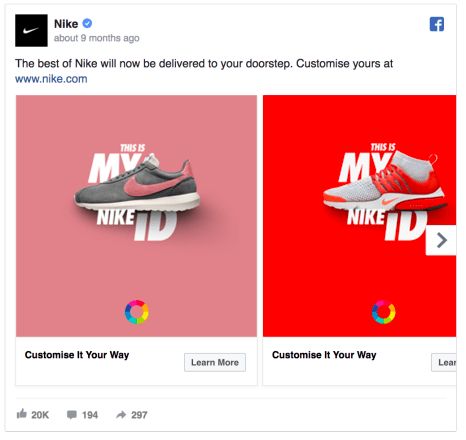Facebook is one of the world’s most popular social media platforms, with over 2.9 billion active users. This makes it a great platform for businesses to reach a large audience and connect with potential customers. However, not all businesses are successful with Facebook marketing.
There are a few reasons why Facebook marketing may work for some businesses but not others. Here are some of the most common reasons:
- Target Audience: Facebook allows businesses to target their ads very precisely, down to the interests, demographics, and even behaviours of their ideal customers. If you’re targeting the right people, your ads are more likely to be successful.
- Ad Creative: The ad creative is the text and images that make up your ad. If your ad creative is engaging and relevant to your target audience, it’s more likely to get their attention and make them want to click.
- Bidding Strategy: Facebook’s bidding system allows you to set the maximum amount you will pay for each click or conversion. If you’re bidding too low, enough people may not see your ads. If bidding too high, you may be wasting money on clicks that don’t convert.
- Budget: Facebook ads can be expensive, so you must set a budget you’re comfortable with. If you don’t have a big budget, you may need to be more strategic about targeting your ads and optimising your campaigns.
- Testing: It’s important to test different ad creative, targeting, and bidding strategies to see what works best for your business. Don’t be afraid to experiment and change your campaigns as needed.
In addition to these factors, some other things can affect the success of Facebook marketing campaigns, such as the overall health of your business, the quality of your website, and the customer service you provide.
If you need to see results from your Facebook marketing campaigns, it’s important to take a step back and analyse your wrongdoings. Once you’ve identified the problem, you can make changes to improve your results.
Here are some additional tips for improving the success of your Facebook marketing campaigns:
- Create clear and concise ad copy that tells your audience what you’re offering and why they should care.
- Use high-quality images and videos that will capture people’s attention.
- Target your ads to the right people based on their interests, demographics, and behaviours.
- Run A/B tests to see what ad creative and targeting strategies work best for your business.
- Set a budget that you’re comfortable with and track your results so you can optimise your campaigns over time.
Following these tips can increase your chances of success with Facebook marketing.
Here are some specific examples of businesses that have been successful with Facebook marketing:
Nike:
Nike uses Facebook to promote its latest products and campaigns. The company has a large following on Facebook, and millions often see its ads of people.

Starbucks:
Starbucks uses Facebook to connect with its customers and promote its loyalty program. The company also uses Facebook to run contests and giveaways.

Netflix:
Netflix uses Facebook to promote its original content. The company’s ads are often targeted to people who have expressed interest in similar content.

Amazon:
Amazon uses Facebook to promote its products and services. The company also uses Facebook to run retargeting campaigns for people who have visited its website.

These are just a few examples of businesses that have been successful with Facebook marketing.
Facebook marketing is a great place to start if you want to grow your business. However, it’s important to remember that there is no one-size-fits-all approach to Facebook marketing. The best way to be successful is to experiment and find what works best for your business.

Biswajit Guha works as digital integration manager and is responsible for planning, implementing, and maintaining the organisation’s digital integration solutions. This includes developing and managing the integration of all of the organisation’s digital systems and applications and ensuring that the systems are secure and compliant with all applicable regulations.




